What Foods Do Northern Mockingbirds Eat?
Updated: Jan. 10, 2024
Do northern mockingbirds visit bird feeders? Find out what foods mockingbirds eat and how to attract them to your backyard.
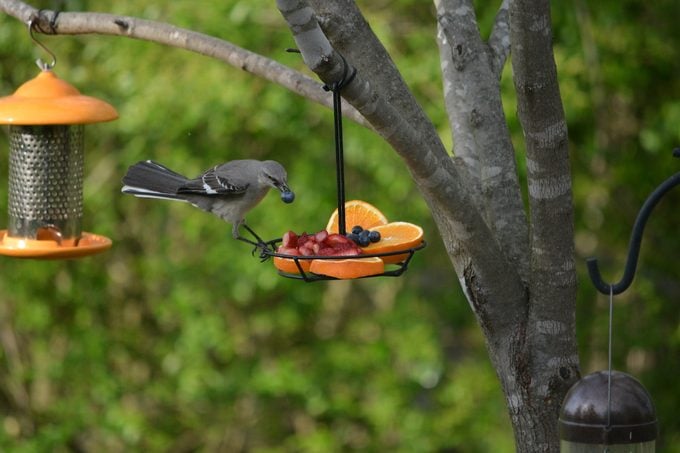
Northern mockingbirds may not be the flashiest birds in your backyard, but they’re some of the most talkative. Learn more about what mockingbirds eat and how you can attract them to your backyard, if they aren’t there already!
On This Page
What Do Mockingbirds Eat?
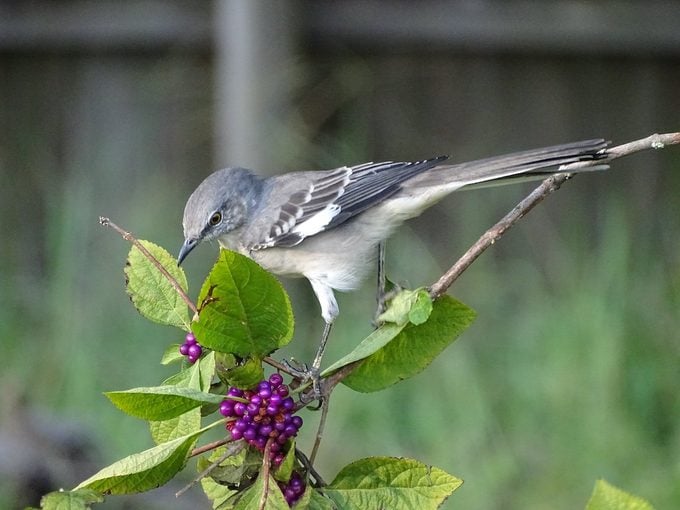
Northern mockingbirds are big berry fans. Attract them with ornamental berry bushes like elderberry, blackberry, juniper and pokeweed.
As omnivores, northern mockingbirds eat insects such as grasshoppers, caterpillars and beetles in summer, and rely on berries in winter.
Although it’s uncommon for northern mockingbirds to stop by seed feeders, you may entice them to your yard with a suet feeder or with sliced fruit like oranges and apples.
Learn how to identify and attract a gray catbird.
Do Mockingbirds Visit Bird Feeders?
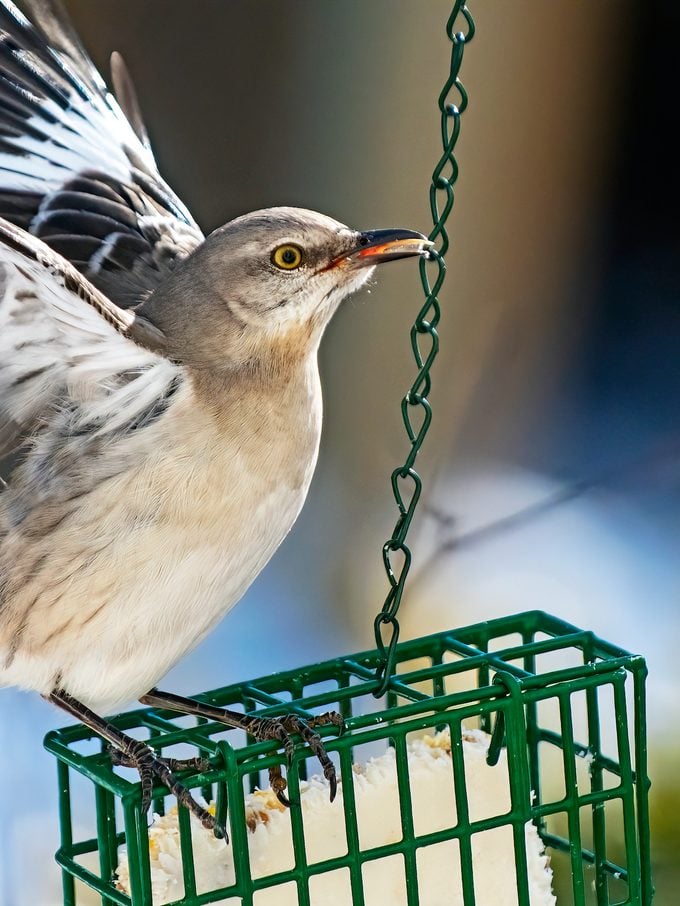
Do Mockingbirds Eat Suet?
“Is it normal for a northern mockingbird to regularly visit suet feeders?” asks Birds & Blooms reader Thomas Faust of Brooklyn, New York.
Birding experts Kenn and Kimberly Kaufman say, “Northern mockingbirds are not typically feeder birds. Their usual diet is insects as well as small fruits, so standard feeder items such as seeds and suet won’t attract them most of the time. But they are flexible and adaptable in their behavior.
After watching birds stop by for suet, a mockingbird may investigate and discover that it’s a good food source. From then on, that individual may become a regular customer, even as other mockingbirds may ignore the feeder.”
Are Mockingbirds Bullies at Bird Feeders?
“Mockingbirds sit by my feeder and scare away other birds, especially bluebirds. How can I discourage them from doing this?” asks reader Linda Howard of Lexington, South Carolina.
Kenn and Kimberly say, “Mockingbirds aren’t usually frequent visitors at bird feeders, so it could be that the ones you’re seeing are defending something else nearby, such as a fruiting tree or shrub. If that’s the situation, you could resolve the conflict by relocating the feeder to a different spot.
If you have mockingbirds coming to your feeder regularly for something like mealworms or suet, try offering these items in smaller amounts at two or three different locations so the aggressive mockers can’t dominate all of them.”
Meet the brown thrasher: an elusive, musical songbird.
Backyard Tips for Attracting Northern Mockingbirds
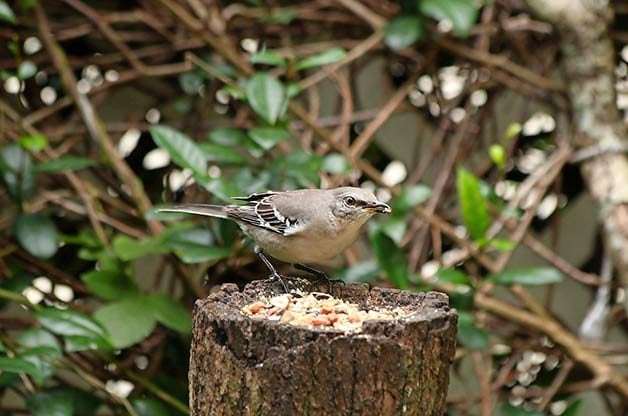
“To attract mockingbirds, I purchase unsalted roasted peanuts and chop them very fine in my food processor. As soon as a mockingbird sees the peanuts on the feeding logs, it swoops in. This particular mockingbird (above) didn’t even mind me sitting a few feet away, taking photos,” says reader Doreen Damn of New Port Richey, Florida.
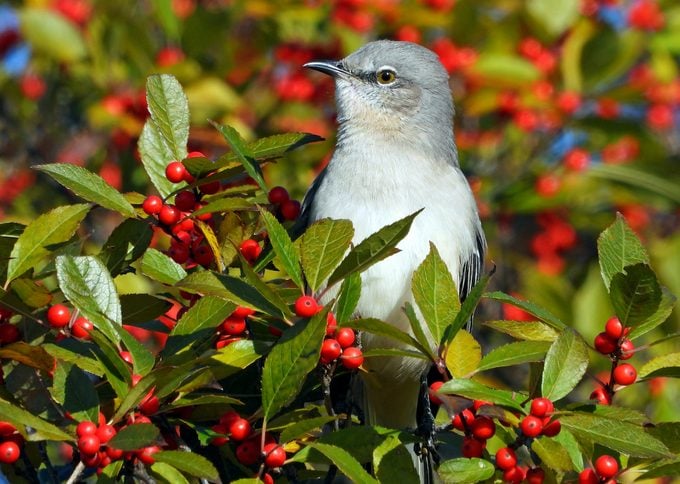
“We don’t have to work too hard to get mockingbirds in our yard. They are everywhere! They’ve never taken to our feeders, but they do like our berry bushes: blueberry, dogwood, raspberry, pyracantha, etc. Whatever berries are in season, the mockingbirds are first in line at the buffet!” says reader Arlene Tencza of Waxhaw, North Carolina.
Sources
Kenn and Kimberly Kaufman, official birding experts for Birds & Blooms
Why Trust Us
For nearly 30 years, Birds & Blooms, a Trusted Media Brand, has been inspiring readers to have a lifelong love of birding, gardening and nature. We are the #1 bird and garden magazine in North America and a trusted online resource for over 15 million outdoor enthusiasts annually. Our library of thousands of informative articles and how-tos has been written by trusted journalists and fact-checked by bird and garden experts for accuracy. In addition to our staff of experienced gardeners and bird-watchers, we hire individuals who have years of education and hands-on experience with birding, bird feeding, gardening, butterflies, bugs and more. Learn more about Birds & Blooms, our field editor program, and our submission guidelines.
